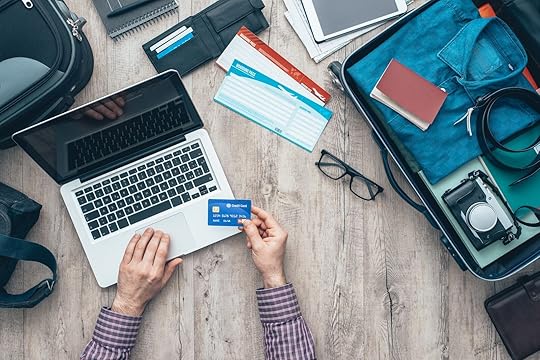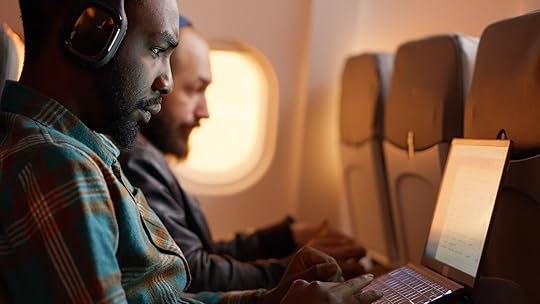Is Delta Air Lines Using AI to Charge You More? What We Know So Far.

According to a surge of recent reports, Delta Air Lines has quietly rolled out a new pricing strategy bound to be controversial. Unlike dynamic pricing that changes flight fares based on factors like seat availability or what time and what day a flight is booked, the new technology adjusts the price by how much the airline thinks a user is personally willing to pay.
According to company leadership, Delta is now using AI to set proposed fares for passengers on an individual basis. It says the system is more efficient, but definitely more profitable, than older models. As of now, only about 3 percent of domestic fares are being sold using the new AI model, though Delta President Glen Hauenstein told investors earlier this month that the goal is to raise that to 20 percent by the end of the year.
It’s a change many consumer watchdog groups and even some lawmakers are calling discriminatory, invasive, and potentially predatory to consumers.

With both dynamic and AI-assisted pricing, two passengers in seats next to each other may have paid drastically different fares. Photo: DC Studio/Shutterstock
It’s well known that the aviation industry has used dynamic pricing for decades. In dynamic pricing models, fares can change throughout the day based on factors like time of booking, how much demand there is for the route, seat availability, and the day of the week. The systems are rule-based and somewhat predictable, loosely based on the idea that prices go up when demand increases and drop when fewer people are interested. The rate is generally the same for each person, provided they’re booking the same ticket at the same time.
Delta’s new AI model is a drastic change in that it’s personalized (or some might say “targeted”) to each potential flyer. Instead of calculating prices based on broad traveler trends, the AI estimates an individual’s willingness to pay in real time. That means that two buyers searching for the same flight at the same time could be offered totally different prices based on undisclosed information and factors an AI can surmise about that person. The technology is built by a company called Fetcherr, which says its system calculates individualized pricing based on millions of data points, including “factors like customer lifetime value, past purchase behaviors, and the real‑time context of each booking inquiry.”
In a statement to Business Insider, Delta denied it would use any personal information to influence pricing, including browsing history, financial data, or location data. However, as of now, Delta has declined to specify what data points the AI does use.
“The biggest shift is that AI pricing goes beyond the traditional supply-and-demand model and tailors prices to each individual in real time,” Jesse Neugarten, founder and CEO of Dollar Flight Club, tells Matador Network. He says that in the past, it was route-based factors that determined the cost. “With AI, the algorithm can ingest tons of personal signals like your browsing history, device type, even estimated income level and spit out a price just for you.”
Which could lead to higher prices for flyers overall.
“It’s no longer just ‘prices are going up because a flight is filling up,’” Neugarten says. “Now, it’s ‘prices are going up for you because we think you’ll still pay it.’”
AI pricing is already facing pushback from lawmakersView this post on InstagramA post shared by Ruben Gallego (@gallegoforaz)
Three Democratic senators (Ruben Gallego of Arizona, Richard Blumenthal of Connecticut, and Mark Warner of Virginia), already sent a warning to the airline, suggesting that AI pricing may be “surveillance-based pricing” — a practice considered predatory to consumers. The senators asked Delta to respond by August 4 with details about what data the AI uses, how the algorithm is trained, and how many passengers have been captured using AI pricing. What may come from the conversation remains to be seen, but it could result in a larger conversation (and potentially regulation) on how AI can be used for consumer pricing.
Consumer advocacy groups echoed the senators’ concerns. “They’re trying to see into people’s heads to figure out how much they’re willing to pay,” according to Justin Kloczko, a reporter with Consumer Watchdog. “It’s hacking our brains for maximum profit.”
In addition to the proposed unfairness of the model, another concern is that the AI pricing tool will create financial penalties for infrequent travelers in an attempt to reward more frequent fliers. That could translate to more expensive fares for lower-income travelers. Studies published in early 2025 across all industries (not just airlines) showed that lower income buyers tend to see the biggest increases in pricing under AI-driven pricing models.
“Legality depends on how the data is sourced and used, but there’s no clear law that says an airline can’t offer a different price to different people based on personal data,” Neugarten says. “Fairness is a different story. If two people are shown two prices for the same seat based solely on how much the system thinks they’re willing to pay, that erodes consumer trust fast. Most travelers have no idea this is happening behind the scenes, which is part of the problem.”
Conversely, Delta says the model is really nothing new. A Delta spokesperson told Boston 25 News that AI pricing technology is just another way of doing what it has been doing for years: changing airfare prices based on demand and availability, and using AI simply “streamlines” that process. And according to Delta President Hauenstein, it’s been profitable, telling investors on the same call that it’s resulting in “amazingly favorable unit revenues.” In other words, consumers are paying more, and the airline is making more money.
Neugarten says while it is technically just an extension of what Delta has already been doing, it’s a big one. “This is the first time we’re seeing personalized pricing on this level, and at machine speed.” He thinks it’s a major shift, akin to flight prices becoming more like an online auction than a clear transaction. “Travelers who aren’t aware of this trend risk overpaying without even realizing it,” he adds.
How to beat the algorithm (maybe)
Photo: Funstock/Shutterstock
Because Delta’s AI pricing model is opaque, with the airline intentionally not sharing what factors determine a price, there’s no foolproof way for travelers to avoid AI pricing. But based on what’s known about similar systems, there are a few educated guesses you can make based on what may be an influencing factor. None of these are guaranteed to work, but in general, taking steps to protect your privacy online isn’t a bad idea anyway.
Shop in incognito mode: AI-powered pricing tools probably don’t use cookies, but using a standard browser may give away information like repeat search behavior, or what website you were just on. Using incognito mode, or switching between unlinked devices for different searches, may help minimize how much data Delta can see.
Delay or rush your airfare purchase: Some AI models consider urgency as a factor. So if you’re repeatedly checking the cost of a route over and over, or searching for a very last-minute ticket, the system may think you’re desperate, and try to charge you more. Booking early could help. However, booking a seat at the very last minute could work, too, as the model may lower the price if it thinks you’re undecided on traveling.
Use a VPN to hide your location: Delta says it doesn’t use geolocation for AI pricing, but the broader travel industry often does. Changing your virtual location with a VPN may yield different fares, particularly on international routes. It may also stop programs from being able to make assumptions about your income or ability to pay based on your residential zip code.
Clear your cache and history: Again, Delta says it doesn’t use personal browsing behavior. But just in case other sites do, clearing your saved information and browsing history can reduce the risk of AI systems being able to recognize patterns it can use to adjust the price.
Use a different device than your daily phone or computer: “Booking on a lower-end Android phone may get a different result than a MacBook Pro,” Neugarten says Neugarten.
Change your profile or loyalty status: AI pricing models may reward frequent travelers. However, there’s also a chance it could interpret loyalty status as a sign that you’re willing to pay more to fly with a certain airline. Searching while logged out, as a guest, or on a brand new profile could help you avoid being classified as potential higher paying customer. 
Matador Network's Blog
- Matador Network's profile
- 6 followers



